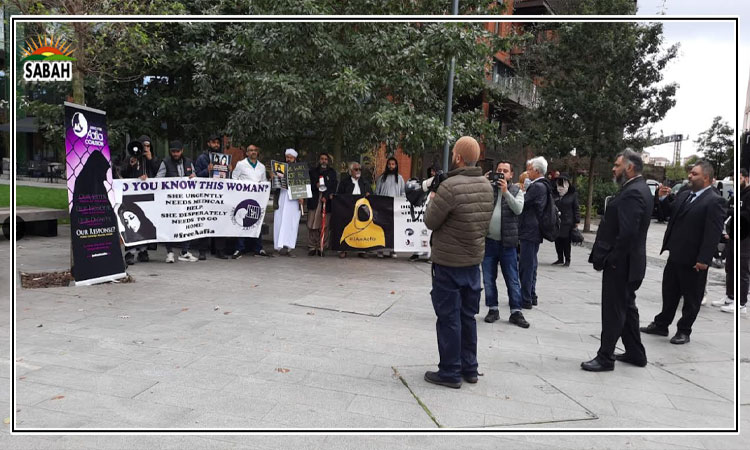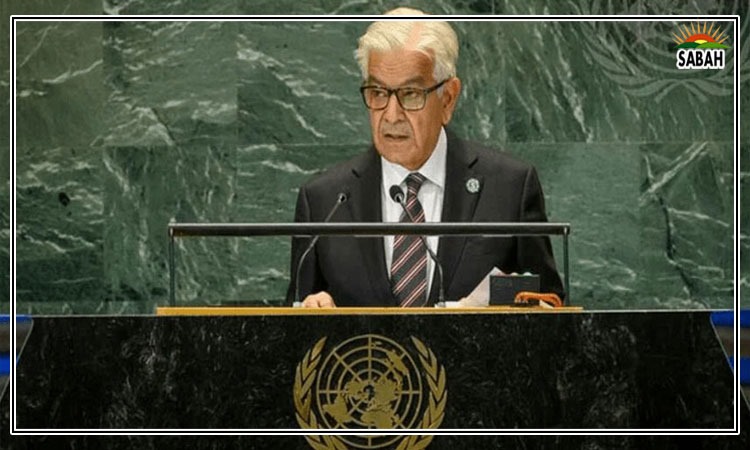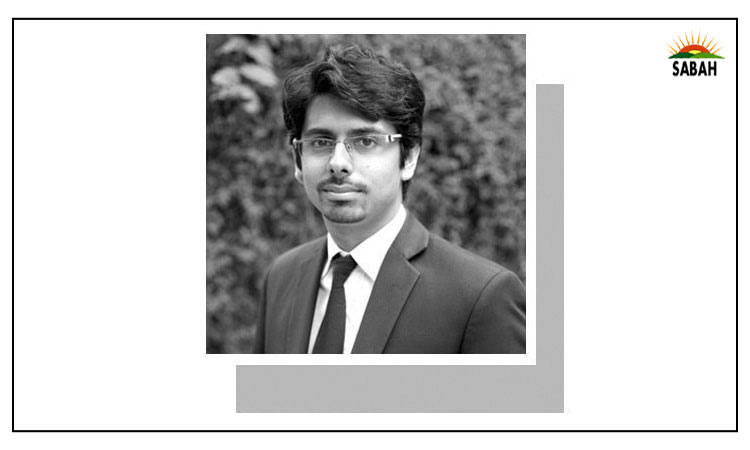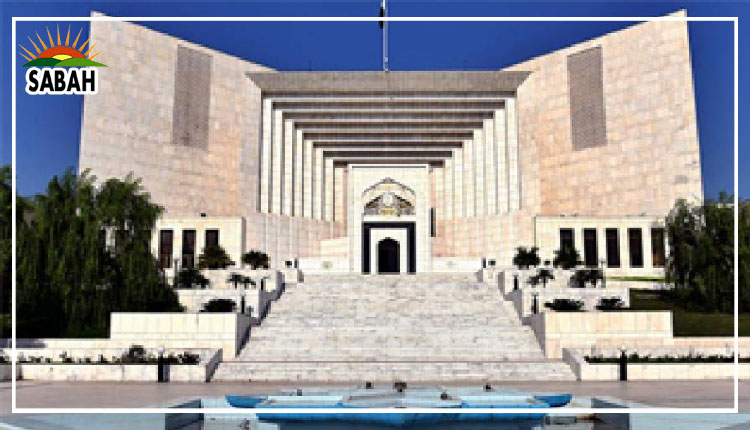After Justice Isa, two more JCP members Justice Sardar Tariq Masood & Justice Mansoor Ali Shah urge CJ Bandial to fill five vacant SC posts
ISLAMABAD, Oct 08 (SABAH): Two more members of the Judicial Commission of Pakistan (JCP) have penned a letter to Chief Justice of Pakistan and Chairman of the Judicial Commission of Pakistan, Justice Umar Ata Bandial, urging him to appoint five judges to Supreme Court’s vacant posts, warning that delay may give rise to “unwanted rumours of petty politics”.
Justice Sardar Tariq Masood and Justice Syed Mansoor Ali Shah penned a joint letter to Chief Justice Umar Ata Bandial a week after Justice Qazi Faez Isa had written a letter to the top judge for the same demand.
The justices said that in order to actualise the constitutional obligation under Article 175A(8) of the Constitution, meetings of the JCP should automatically be scheduled at the earliest on the occurrence of any vacancy in the apex court.
“JCP is not the Supreme Court of Pakistan, but an independent constitutional body, that must have a separate and an independent functional secretariat, headed by a professional secretary,” they mentioned.
The judges said that it was essential to honour the constitutional obligation and to keep the courts fully functional in order to ensure speedy dispensation of justice across the country and to protect the right to access to justice of the people.
Justices Masood and Shah mentioned that the responsibility of timely filling the vacancies in a court falls primarily on the shoulders of every member of the JCP.
Any inordinate delay in the performance of this function, except for an unavoidable cause, which is not there in the present case, is both unfortunate and undesirable, they noted.
“Supreme Court of Pakistan has five vacancies that have piled up since February 2022, over a period of almost nine months. We as members of the JCP, have time and again requested you to hold a meeting of the JCP to fill these vacancies.” “Our meetings with you in this regard have ended in vain,” they said.
The justices told the CJP that it was crucial to ensure that the vacancies are filled as a delay gives rise to “unwanted rumours of petty politics, lobbying and quid pro quo appointments”.
The issues, the judges said, not only undermine the institution but also seriously impair the neutrality and the transparency of the appointment process.
They reminded the CJP that they have taken an oath to defend the Constitution and in line with the Al-Jehad Trust case (1996), “permanent vacancies occurring in the offices of […] judges normally should be filled in immediately [but] not later than 30 days” from the date of occurrence of the vacancies, and it is a “constitutional obligation” of the Judicial Commission of Pakistan”.
The inordinate delay of almost nine months, in this case, must be urgently addressed first, they noted.
In order to swiftly move forward to fill the current vacancies, the judges said, they had proposed two options — either consider the five chief justices of the five high courts against five vacant posts or consider the top two judges from every high court and open these options to vote in the next meeting of the JCP.
“This is the best way forward in the current circumstances, till such time that more sophisticated selection criteria and Constitution-compliant Rules are framed,” they added.
In his letter written on 28th September, Justice Qazi Faez Isa urged CJP Bandial to “immediately” convene a meeting of the JCP to fill the vacant SC seats as unfilled seats may leave the country’s highest court “dysfunctional”.
The senior puisne judge highlighted that the five vacancies mean that the apex court has lost 726 working days and more than “50,000 cases have accumulated in the Supreme Court” during this time.
“It pains me to state that cases filed in the Supreme Court are unlikely to ever get decided if the vacancies are not filled in,” Justice Isa told the CJP in the letter.
The judge reminded the JCP chairman that people have “invested heavily in the Supreme Court which employs about 700 staff and has a considerable budget”. He further argued that it was “not understandable why the Supreme Court” was working at a 30% reduced capacity in such circumstances.”












